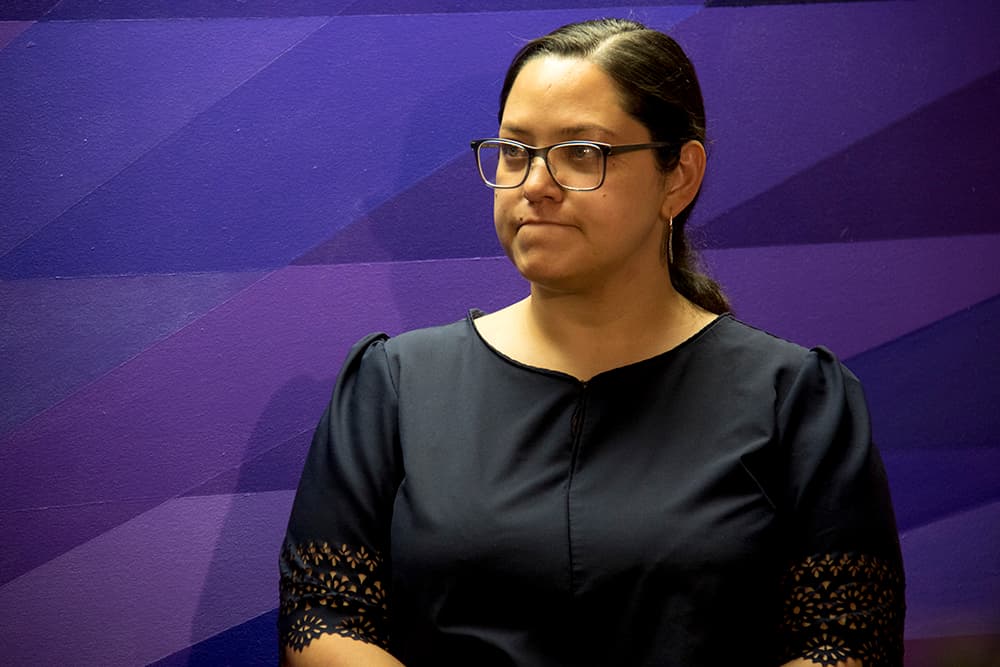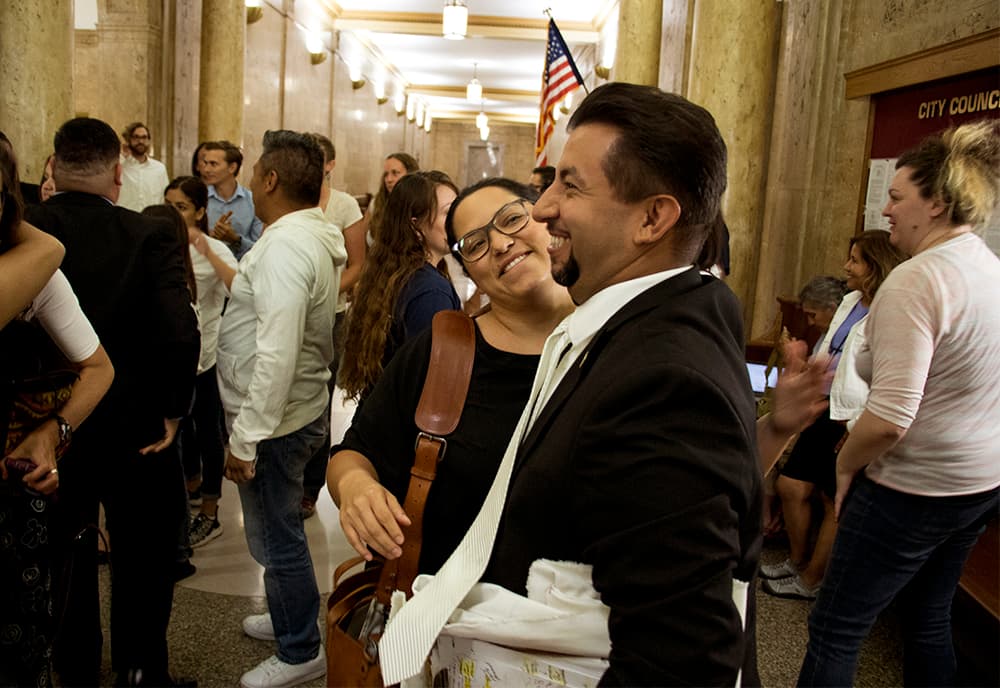
In the months since Donald Trump was elected president, the Meyer Law Office has injected itself publicly and forcefully into the debate over immigration enforcement and how far local government should go to protect those who don't have authorization to be here. And, increasingly, the voice of the law office has been not just attorney Hans Meyer but his policy director, Julie Gonzales.
Now Gonzales, who has more than a decade of experience in community organizing and advocacy, has thrown her hat in the ring to represent west Denver in the Colorado Senate, a seat currently held by Senate Minority Leader Lucia Guzman, who is term-limited.
State Rep. Dan Pabon has been seen as the likely heir apparent to this district, though he hasn't actually filed paperwork to run. He told Colorado Politics this week that he is planning to announce in the fall, adding that he is "99 percent there."
Also having filed paperwork for the seat is Alan Kennedy-Shaffer, a well-known figure in Harrisburg, Pennsylvania, where he served six months on the school board before moving to Colorado to pursue a PhD in public affairs. An attorney, Shaffer represented a Libyan student who challenged Trump's travel ban and a group of protesters who briefly occupied U.S. Sen. Cory Gardner's office (not the ADAPT folks who spent 58 hours there, but a smaller group from Democratic Socialists of America).
So we're likely looking at a three-way primary between an established Democratic politician, an activist with deep community ties and a relative newcomer who is also making a name in activist circles.
Gonzales said she did not have political ambitions until very recently.
"This has not been a part of my life plan or part of my long-term thinking," she said. "I've always seen my role as an organizer and supporting the community, not being under the Dome. It's just in the past few weeks that this came up. A few friends whom I love and respect were like, 'Hey, there is this seat open, there will be a primary, and this district would really benefit from someone who can continue the work that Lucia Guzman has done.'
"My threshold, the way that I determine what I want to be involved in, is, can I do good work?'" Gonzales said.
Gonzales grew up on the San Carlos Apache reservation in Arizona and in southern Texas, where her father managed cattle ranches. Her mother grew up in rural Huerfano County, and her father's family is from northern New Mexico.
She attended Yale University, where she "learned the vocabulary to understand and analyze systems and power dynamics" and got experience with organizing through a series of labor strikes. She graduated in 2005 and moved to Denver to work as a labor and community organizer with FRESC. She got involved in educational advocacy and began fighting for the DREAM Act, which would give a path to citizenship for unauthorized immigrants who were brought here as children.
Gonzales said she was getting burnt out on organizing work and considering law school when she had the opportunity to go work for Meyer in 2012.
In recent months, she's been a constant presence in Denver's debate over immigration, drawing attention to the presence of Immigration and Customs Enforcement agents in Denver courthouses and participating in negotiations over the final form of a Denver City Council bill to limit law enforcement cooperation with ICE.
She filed her paperwork to run the night that Denver City Council passed that bill, a bill that led state Rep. Dave Williams, a Colorado Springs Republican, to call for a federal investigation of the city.

Gonzales believes the state can and should do more to protect Colorado's immigrant communities, but that's just one issue she cares about. Her overarching concern is making sure ordinary people can benefit from the region's explosive growth.
When she first moved to Denver, she could rent a one-bedroom apartment for $500; now, the average apartment rent is more than twice that. Gonzales is now the owner of an affordable housing unit, but that she even had the opportunity to buy it makes her a "unicorn who won the lottery," she said.
"We can't even have the conversations around increasing affordability because there is a sense of well, developers are going to develop whatever they want," she said. "We need to have a conversation around how we ensure equity for everyone across the city. That's something I'm really excited about and something that matters to the people I live with, my neighbors and friends and family members."
Housing is one piece of the puzzle, and another is jobs.
"Who are we going to be as a city and as a state?" she said. "How do we ensure access to success? How do you get a good job? How do you create good jobs and opportunities for everyone?"
In her policy work, Gonzales said, she has helped bridge difficult divides, and she knows no one gets everything they want out of the political process. But having earnest conversations can help find common ground and ensure everyone feels heard.
"Our politics are so broken right now," she said.
"Democrats don't talk to Republicans, and there is a big rift in the Democratic Party between Bernie supporters and Hillary supporters. I have family members who voted for Trump. I have family members who voted for Gary Johnson. What is happening in our politics and in our country is also happening in our families. We have to find ways to talk about issues. We have to find common ground. We are not putting forward our best selves if we cannot have those conversations."












